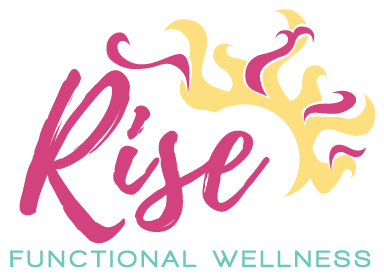 As Tony Robbins says, “The quality of our emotions is the quality of our life.”
As Tony Robbins says, “The quality of our emotions is the quality of our life.”
But what does that really mean?
Our emotions affect our mood and our behavior. And our thoughts create our emotions.
Have you ever lost a pet? Think about that time when you lost your pet. If you are a pet lover like me, I am sure it caused you great emotional pain. What kinds of thoughts did you have running through your mind?
If I think back to when I lost my Nala, I thought it felt like my world had stopped. I was angry that the lives of our pets are so short. I was angry that she had gotten sick. I was angry that the medications failed her and ultimately caused her death, rather than being lifesaving.
Her meds made her die (thought) = Anger (emotion).
Now let’s look at how emotions impact our behavior.
Consider the ways in which emotions affect decision making. If you are angry, you may make irrational decisions without taking the time to think them through. If we are excited, we may make a decision without considering other implications, like whether or not you have the money for it or taking the time to weigh the pros and cons.
If we allow fear to dictate our actions, we often play small or hold ourselves back from doing the very things we want most.
Fear holds people back most often and leads to self-sabotage.
Consider the woman who is afraid to ask for a raise, or a promotion or the significant impact it makes when she is too afraid to negotiate her salary before accepting a job.
Think about a time when you really wanted something, but you allowed the fear of what others would say or think keep you from pursuing it.
So if our thoughts create our emotions and our emotions dictate our behavior, we must focus on changing our thoughts.
Emotional Home
Tony Robbins speaks of an emotional home. He says that we develop habitual emotional patterns including emotional patterns. And we have a tendency to come back time and again to the same emotional patterns. It is essentially the emotions you continue to come back to.
Most likely you created these patterns in your early developmental years, likely ages 2 to 7. Can you identify some of your default emotions?
What emotion(s) do you feel most often when you wake up in the morning? What about when someone cuts in front of you in traffic? What if something doesn’t go your way, what emotional state do you resort to then?
These patterns make up your emotional home. And if we aren’t in love with what is familiar or comfortable, know that you can change your habits (with some effort of course).
It is important to create extraordinary habitual emotions to improve the quality of your life. We can do this through learning emotional mastery.
Emotional Mastery
When we take control of our internal world begin to create change in our external world. Or in other words, we cannot change circumstances, but we can change the meaning we assign, or the thoughts we think about such circumstances. And in those different thoughts and meanings, we begin to change the way we perceive the world and the way the world perceives us.
The ability to create emotional mastery has an impact on our relationships, our communication skills, our self-worth and our overall fulfillment in life.
Understanding and acknowledging your emotions are the first steps to emotional mastery. Once you can accept emotions as they are, you can begin to reclaim your control, your power and ultimately mastery over them.
Emotional Intelligence
Similar to Tony Robbins’ approach on emotional mastery, emotional intelligence has been highlighted as one of the most important skills to have and to look for in others. Emotional intelligence is the ability to perceive, mange and control your own emotions and the emotions of others. Some even indicate that emotional intelligence, dubbed EQ, is even more important than IQ.
While some researchers believe our level of EQ is something we are born with, others believe it is a skill that can be strengthened with practice and understanding.
Using emotional mastery and/or emotional intelligence we can begin to reconstruct our emotional home. In developing awareness about our emotional tendencies, we can begin to identify what needs to shift.
Once we know what emotional patterns and habits are not serving us, we can begin to implement action steps and strategies to move towards new and optimal emotions.
“Take control of your consistent emotions and begin to consciously and deliberately reshape your daily experience of life.” – Tony Robbins
The following are some journal prompts for you to consider this week:
- What are some empowering emotions that you experience each day or week?
- What are some disempowering emotions you experience each day or week?
- What would transform the quality of my life?
- How would your life change for the better?
- How would you spend each day if this were the last week of your life?
I would love to hear what you came up with. Send me an email to [email protected]. It would mean the world to hear from you and to know what resonates.
Thank you for reading!
